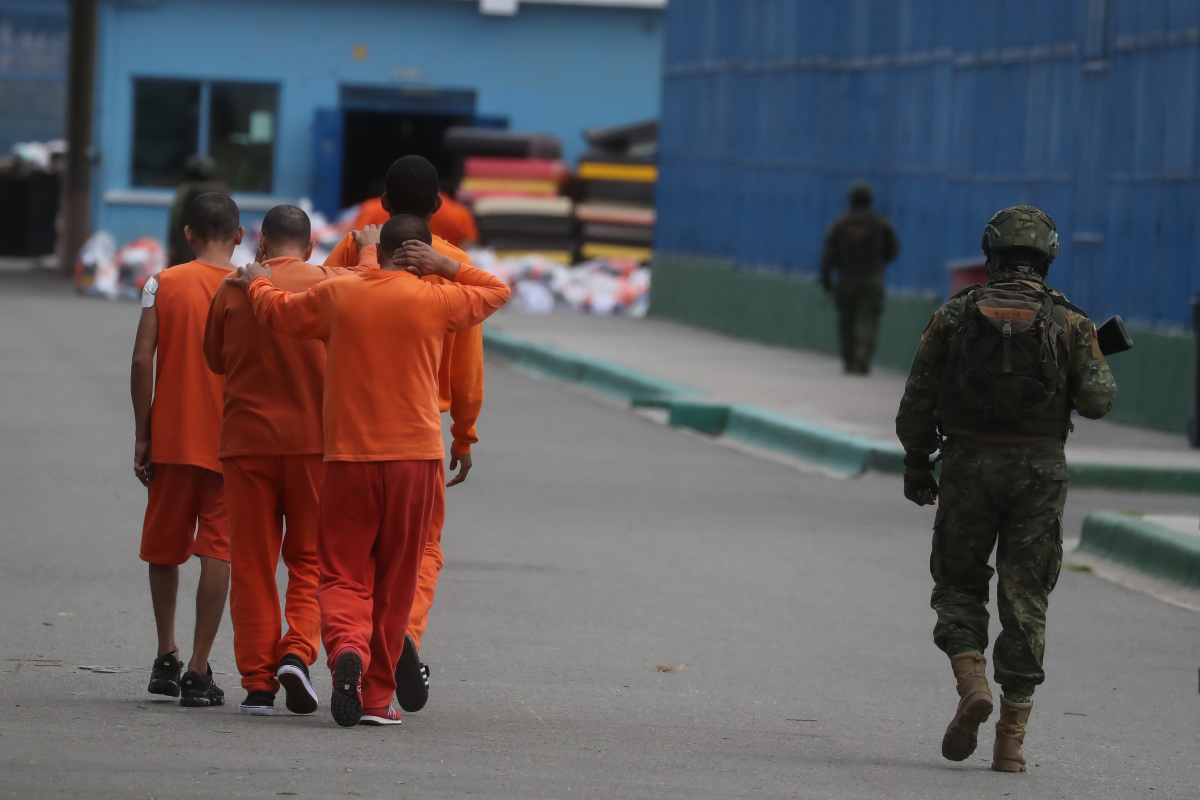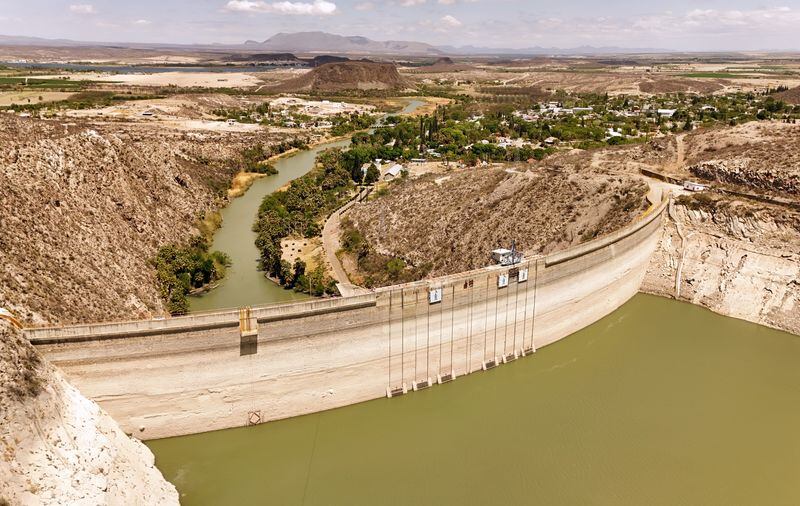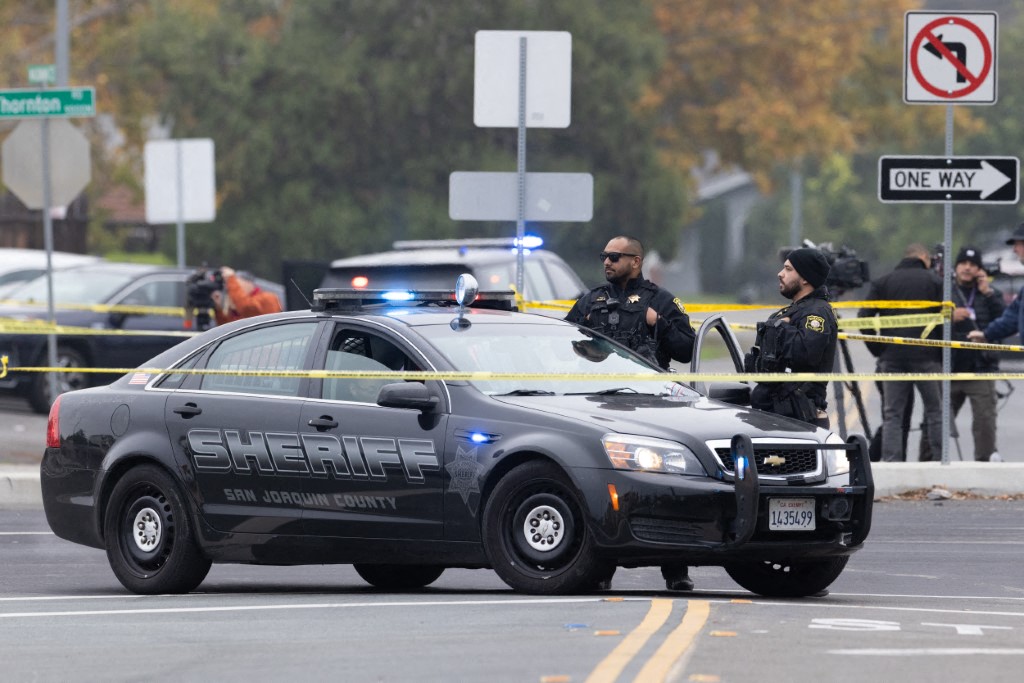International
Ecuadorian Ombudsman’s Office reports violent deaths of prisoners in prisons under military control

The Ombudsman’s Office of Ecuador issued a statement where it reported cases of violent deaths of prisoners in prisons under military control “with signs of alleged torture,” as well as warnings of deaths of prisoners due to malnutrition.
This report was issued by the Ombudsman’s Office after a judge ordered this institution to investigate the allegations of human rights violations filed by non-governmental organizations during the militarization of prisons ordered by the Government of President Daniel Noboa in the framework of the “internal armed conflict” that he declared against organized crime.
According to its report, the Ombudsman’s Office counted 24 deaths of prisoners in various prisons in the country between February 9 and March 7, 2024, “by natural deaths and in other cases by violent deaths, with indications of alleged torture. Likewise, there are alerts of the death of PPL (persons deprived of liberty) with signs of malnutrition.”
That record corresponds to the first of the three months that the state of emergency that Noboa decreed at the national level against criminal gangs lasted, and whose declaration of “internal armed conflict” remains in force, with which the Government has come to name these groups as terrorists and non-state belligerent actors.
“From the information collected by family members, people deprived of liberty, the media and civil society, the increase in deaths in the CPL (centers of deprivation of liberty) was identified, they are in the custody of the Armed Forces,” said the Ombudsman’s Office.
The institution that ensures the fulfillment of fundamental rights in Ecuador pointed out that it is constantly monitoring the prisons of the provinces of Esmeraldas, Santo Domingo, Carchi, Imbabura, Pichincha (whose capital is Quito), Cotopaxi, Sucumbíos and Napo, in which the food service was suspended since May 1.
Likewise, it echoed the journalistic reports that warn that the suspension of the food service will be extended to the province of Guayas, whose capital is Guayaquil, where the largest prison complex in the country is located, which with about 12,000 inmates, approximately a third of the country’s prison population.
“The authorities were aware of the possible risk of incidents in the centers due to food problems,” said the Ombudsman’s Office.
The SOS Cárceles Ecuador platform denounced the alleged death of an inmate from the Latacunga prison, in the province of Cotopaxi, for alleged malnutrition, information that so far has not been confirmed nor denied by the National Service of Integral Attention to Persons Deprived of Liberty (SNAI), the State’s prison agency.
The Government has attributed the suspension of the food service to an alleged link of the supplier company to organized crime, while the company has pointed out in the media that it registers a significant State debt.
In some prisons, the relatives of the prisoners have organized themselves to collect donations and provide food to their imprisoned relatives.
Ecuador’s prisons are one of the epicenters of Ecuador’s violence crisis, as many of them are under the control of criminal gangs, so Noboa went on to militarize them when he decreed a state of emergency at the national level at the beginning of the year.
Between 2020 and 2023, more than 500 prisoners were murdered within them, most of them in a series of bloody prison massacres due to disputes between rival gangs.
These gangs, mainly dedicated to drug trafficking, are credited with the swell of violence that plagues Ecuador and that has led it to be among the first countries in Latin America with the most homicides, with a rate of 47 per 100,000 inhabitants in 2023, according to the Ecuadorian Observatory of Organized Crime (OECO).
So far Noboa has closed ranks around state forces in the face of allegations of human rights violations during what the head of state has called a “war” on organized crime.
On Monday, the Deputy Minister of Government, Esteban Torres, rejected the letter sent by the organization Human Rights Watch (HRW) to Noboa in which he expressed to him that his evaluations of that first state of emergency determined that the declaration of “internal armed conflict” is not sufficiently motivated and that that measure contributed to serious human rights violations.
International
Police investigate deaths of Rob Reiner and wife as apparent homicide

The Los Angeles Police Department (LAPD) is investigating the deaths of Hollywood actor and filmmaker Rob Reinerand his wife as an “apparent homicide,” amid a wave of tributes to the director of classics such as When Harry Met Sally.
According to U.S. media reports on Sunday, Rob Reiner and Michele Singer Reiner were found dead at their Los Angeles mansion with what appeared to be stab wounds.
Several political figures shared messages of condolence following the reported deaths of the director of A Few Good Menand his wife.
While the LAPD did not officially confirm the identities of the victims, it stated that homicide detectives were dispatched to the Reiner residence.
“At this time, no additional details are available and the investigation into an apparent homicide is ongoing,” the Los Angeles Police Department said in a statement posted on social media.
LAPD Deputy Chief Alan Hamilton told reporters that no arrests have been made and that no individuals are currently being questioned as suspects.
“I’m not going to confirm whether anyone is being questioned at this moment or not. We are going to try to speak with as many family members as we can,” Hamilton said.
CNN reported that a family spokesperson confirmed the deaths of Reiner and his wife.
California Governor Gavin Newsom, former U.S. President Barack Obama, and former Vice President Kamala Harrisissued statements expressing their condolences.
International
U.S. and Mexico Reach Deal to Address Water Deficit Under 1944 Treaty

The United States and Mexico have reached an agreement to comply with current water obligations affecting U.S. farmers and ranchers and for Mexico to cover its water deficit to Texas under the 1944 Water Treaty, the U.S. Department of Agriculture said in a statement.
The department уточified that the agreement applies to both the current cycle and the water deficit from the previous cycle.
On Monday, U.S. President Donald Trump accused Mexico of failing to comply with the water-sharing treaty between the two countries, which requires the United States to deliver 1.85 billion cubic meters of water from the Colorado River, while Mexico must supply 432 million cubic meters from the Rio Grande.
Mexico is behind on its commitments. According to Washington, the country has accumulated a deficit of more than one billion cubic meters of water over the past five years.
“This violation is severely harming our beautiful crops and our livestock in Texas,” Trump wrote on Monday.
The Department of Agriculture said on Friday that Mexico had agreed to supply 250 million cubic meters of water starting next week and to work toward closing the shortfall.
Agriculture Secretary Brooke Rollins, quoted in the statement, said Mexico delivered more water in a single year than it had over the previous four years combined.
Trump has said that if Mexico continues to fall short of its obligations, the United States reserves the right to impose 5% tariffs on imported Mexican products.
Mexico’s Deputy Foreign Minister for North America, Roberto Velasco, said that a severe drought in 2022 and 2023prevented the country from meeting its commitments.
International
Several people shot in attack on Brown University campus

Several people were shot on Saturday in an attack on the campus of Brown University, in the northeastern United States, local police reported.
“Shelter in place and avoid the area until further notice,” the Providence Police Department urged in a post on X. Brown University is located in Providence, the capital of the state of Rhode Island.
U.S. President Donald Trump said on his social media platform Truth Social that he had been briefed on the situation and that the FBI was on the scene.
At 5:52 p.m. local time (11:52 p.m. GMT), Brown University said the situation was still “ongoing” and instructed students to remain sheltered until further notice.
After initially stating that the suspect had been taken into custody, Trump later posted a second message clarifying that local police had walked back that information. “The suspect has NOT been apprehended,” the U.S. president said.
-

 International4 days ago
International4 days agoWashington declares State of Emergency as atmospheric river brings severe flooding
-

 International4 days ago
International4 days agoU.S. to require five-year social media history from tourists under Visa Waiver Program
-

 Central America3 days ago
Central America3 days agoHonduras election crisis deepens as CNE president denounces intimidation attempts
-

 International3 days ago
International3 days agoCuba battles out-of-control dengue and chikungunya epidemic as death toll rises to 44
-

 Central America4 days ago
Central America4 days agoOAS and EU urge honduran political actors to respect vote results and avoid unrest
-

 International3 days ago
International3 days agoColombia says it would not reject Maduro asylum request as regional tensions escalate
-

 International2 days ago
International2 days agoSeveral people shot in attack on Brown University campus
-

 International3 days ago
International3 days agoEcuador on track for record violence as homicides hit highest level in Latin America again
-

 International4 days ago
International4 days agoSix ecuadorian soldiers jailed pending trial for alleged extrajudicial execution
-

 International2 days ago
International2 days agoU.S. and Mexico Reach Deal to Address Water Deficit Under 1944 Treaty
-

 Central America16 hours ago
Central America16 hours agoPanama seizes over three tons of drugs hidden in Caribbean port container
-

 International4 hours ago
International4 hours agoPolice investigate deaths of Rob Reiner and wife as apparent homicide
-

 Central America4 hours ago
Central America4 hours agoOAS urges swift recount in Honduras as election results remain uncertain


























